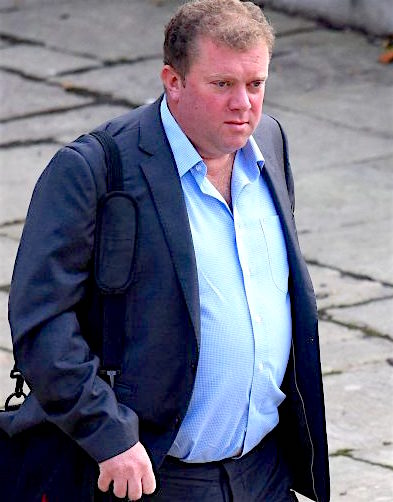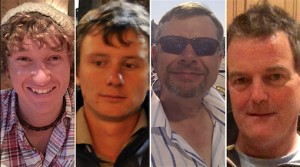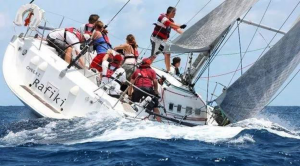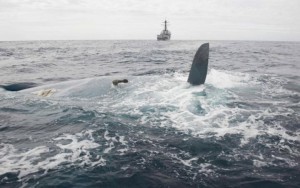Douglas Innes, who managed the vessel Cheeki Rafiki has been found guilty of failing to ensure the safety of the yacht which capsized in the Atlantic with the loss of four lives in May 2014.
In the trial which has lasted longer than a month at Winchester Crown Court his company Stormforce Coaching was also convicted of the same charge with the jury voting on a majority of 10: 1. However after deliberating since Tuesday the jury of 11 were unable to reach verdicts on the four manslaughter charges against Innes and so were discharged. This means that Innes could face retrial on the four manslaughter charges.
The four crew on Cheeki Rafiki, which capsized when she lost her keel 700 miles off Nova Scotia in F7 winds with 5m waves, were skipper Andrew Bridge, 22, from Farnham in Surrey, with James Male, 22, from Southampton, as well as Steve Warren, 52, and Paul Goslin, 56, both from Somerset. They were sailing home from Antigua Week. The court heard of how the US Coastguard was criticised for calling off its search for the stricken vessel after just two days, but it was restarted after intervention by the British government. The vessel was eventually found turned turtle sans keel with the life raft but no sign of the four men. Their bodies have never been found.
Innes, 42, of Whitworth Crescent, Southampton, was convicted of failing to carry out proper checks to the vessel. The yacht had been given a “category two” code, which meant it was only authorised to be used commercially up to 60 miles away from a “safe haven”, and the code certificate had expired shortly before the tragedy occurred.
Jurors heard that when Innes was contacted by the skipper Andrew Bridge informing him there was a problem with leaks on board, he was in a pub at the time, and did not call the coastguard but instead went to another pub where Mr Bridge phoned him again to say the situation had worsened. He returned home, and called the coastguard and also emailed the crew to suggest they check the keel bolts on the fin keel Farr designed Beneteau 40.7.
Prosecutor Nigel Lickley QC said it later emerged that some of the bolts had been broken “for some time” before the yacht left the UK in October 2013. Jurors heard from dozens of expert witnesses called to explain and define maritime surveying, coding practices, yacht construction, metal corrosion, glassfibre debonding, navigation and passage planning. The court heard of the several times Cheeki Rafiki suffered groundings, from before Stormforce began managing her in 2011 and on three occasions between then and 2013. Although the most recent were not regarded as serious she had had repairs to her keel structure. The prosecution said the yacht was not structurally safe before leaving Antigua, that the keel matrix had begun debonding from the hull, and that the keel bolts, particularly bolt nine the aftmost full-size bolt had failed.
The yacht was described as unsound, broken and unsafe before the four men left Antigua. She had been neglected, not maintained and importantly, because the yacht was used commercially by Mr Innes and his company, she was not inspected as required.
Innes, who showed no emotion during the verdict, was released on unconditional bail.





